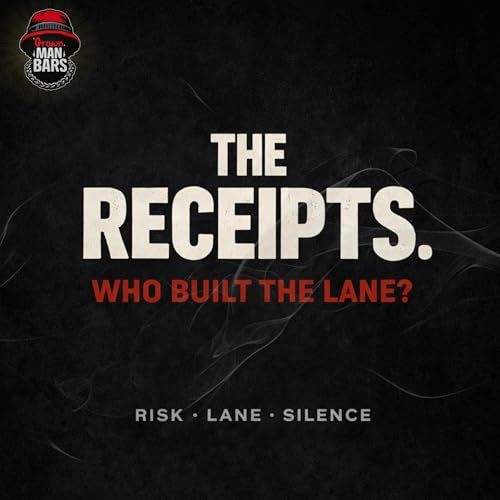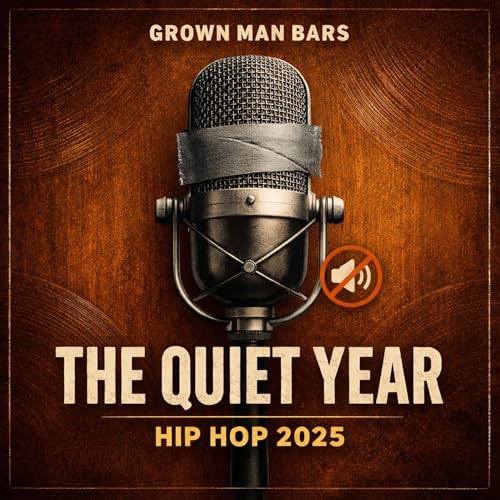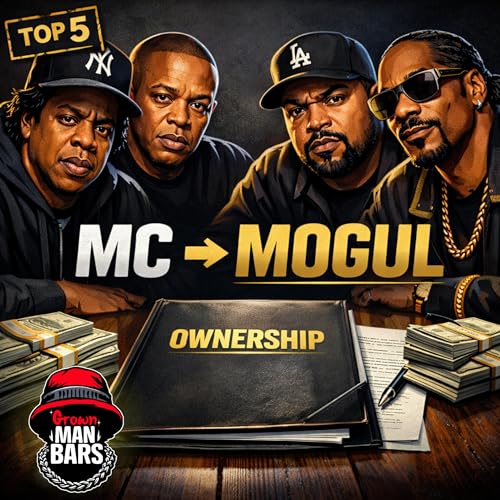Was T.I. vs Ludacris ever really a beef — or was it just competition done the right way?
On this episode of Grown Man Bars, Chad and Big Absoloot break down the catalogs round by round, putting T.I. and Ludacris head-to-head in a structured 9-round battle.
Each round focuses on a different lane:
Early breakout records
Hood vs club anthems
Feature kills
Bar-heavy deep cuts
Emotional storytelling
Cultural moment records
Timeless classics
No hype. No revisionist history.
Just grown-man perspective, real disagreement, and respect for the era.
By the end, you decide who wins — because in hip hop, there are no ties.
00:00 Introduction and Initial Debate01:02 Welcome to Grown Man Bars01:50 Setting Up the Versus Battle03:00 The Kick Off05:54 Round 1: Hood Credibility vs. Club Credibility08:44 Round 2: The Hit Records10:51 Round 3: The Feature Kill14:36 Round 4: The Bar Fest15:14 Round 516:58 Round 6: Club Smash 19:53 Round 7: Emotional Moment22:39 Round 8: Cultural Moment25:58 Round 9: Timeless Tracks28:05 Final Thoughts
Round 1 — First Impression / Breakout Records
• Ludacris: What’s Your Fantasy
• T.I.: Rubber Band Man
Club formula vs Atlanta street identity — who introduced themselves better?
• T.I.: I’m the King
• Ludacris: Southern Hospitality
Locker-room energy vs worldwide chant — dominance vs movement.
• Ludacris: Stand Up
• T.I.: Whatever You Like
Radio saturation vs female-driven crossover appeal.
• T.I.: Swagger Like Us (with Jay-Z & Kanye)
• Ludacris: Stomp (feature verse)
Holding your own with giants vs stealing the whole record.
• Ludacris: War With God
• T.I.: ASAP
Cadence control vs nonstop punchlines — pure rap round.
• T.I.: 24’s
• Ludacris: Move B***
Rolling anthem vs chaos anthem — the floor vs the fight.
• T.I.: The Amazing Mr. F**up*
• Ludacris: Runaway Love (feat. Mary J. Blige)
Grown-man vulnerability vs social storytelling.
• Ludacris: Area Codes
• T.I.: Motivation
Catchphrases and hooks vs horns, hustle, and stadium energy.
• T.I.: Front Back (feat. UGK)
• Ludacris: Georgia (feat. Field Mob & Jamie Foxx)
Cookout classic vs Southern anthem.
Round 2 — Hood Credibility vs Club CredibilityRound 3 — Certified Hit RecordsRound 4 — Feature KillRound 5 — Bar FestRound 6 — Club SmashRound 7 — Storytelling & EmotionRound 8 — Cultural MomentRound 9 — Timeless Cut
 37 分
37 分 25 分
25 分 31 分
31 分 30 分
30 分 29 分
29 分 2025/12/3028 分
2025/12/3028 分 41 分
41 分 31 分
31 分
